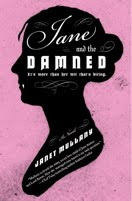 A big Riskies welcome to Christie Kelley who’s here to talk about her October release SCANDAL OF THE SEASON and to whom I’m grateful for saving me from independent thought today. She’ll be giving away a signed copy to one person who comments, so please post a question or comment.
A big Riskies welcome to Christie Kelley who’s here to talk about her October release SCANDAL OF THE SEASON and to whom I’m grateful for saving me from independent thought today. She’ll be giving away a signed copy to one person who comments, so please post a question or comment.
I’ve known Christie just about as long as I’ve been writing. She’s my critique partner and one of the best plotters I know. When Christie was starting this book, she posed the innocent question to the critique group: Can you think of a good reason why the hero’s mother should run a brothel? Much hilarity ensued.
Kelley’s fresh and vibrant romances are emotional, fast-paced and intriguing. Her originality captivates readers and grabs their attention. She gifts everyone with a holiday-set story that’s a little bit Hans Christian Andersen merged with all of her sensual storytelling ability. 4 stars, Kathe Robin, Romantic Times
This book sparkles like diamonds and dazzles like rubies. The Reading Reviewer
This is book number four in your series about a group of women who’ve vowed never to marry, although it reads very well as a stand alone. Do you miss your characters when a book is finished?
 I don’t normally because they pop up as secondary characters in the next book. I did just finish writing the last of the Spinster Club series. It was difficult to finish because these characters have been part of my life since 2004 when I first started writing EVERY NIGHT I’M YOURS. All the spinsters wanted more “on screen” time in the last book as if to get their last words in.
I don’t normally because they pop up as secondary characters in the next book. I did just finish writing the last of the Spinster Club series. It was difficult to finish because these characters have been part of my life since 2004 when I first started writing EVERY NIGHT I’M YOURS. All the spinsters wanted more “on screen” time in the last book as if to get their last words in.
Who did you visualize as Somerton when you were writing him, or who would you cast in the movie?
 What an easy question! As soon as I started writing Somerton as a secondary character I visualized Jensen Ackles from Supernatural. He was my perfect Somerton in looks and character.
What an easy question! As soon as I started writing Somerton as a secondary character I visualized Jensen Ackles from Supernatural. He was my perfect Somerton in looks and character.
What’s your favorite scene in the book?
I don’t want to give too much away but it’s when my heroine, Victoria does something completely selfless because she loves Somerton. She gets hurt in the process and he can’t understand why she did it. She tells him she loves him and didn’t want to see him hurt. The fact that someone would do something for him because of love just about breaks him. I love it!
What was the most difficult part for you to write?
I had too much plot in this book. It just wasn’t working. Thankfully, my other critique partner, Kathy Love speed read the book and we replotted a few things. After two weeks of rewriting I was able to kill some of the external plot that was taking over the book. I guess that what I get for not being a plotter.
Which writers have influenced you?
Jane Austen for one. But I didn’t really discover her until college. I grew up reading modern historical romances so I think I was most influenced by Johanna Lindsey.
What’s next for you?
The final Spinster Club book, ONE NIGHT SCANDAL, will be a June 2011 release. Right now, I’m busy writing a proposal for a shorter series based on a very minor character in SCANDAL OF THE SEASON.
Thanks, Christie, and let’s chat!




